Muscle Insider
New member
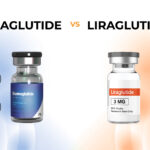
Get ready to dive into the world of peptides with a showdown between two heavyweights: Liraglutide and Semaglutide.
Reports suggest that worldwide obesity has tripled since 1975 [1], and 37.3 million people are suffering from diabetes [2]. The rising body weight and increased body mass index have had alarming implications on global health.
Having said that, the two peptides are making waves in the medical community for their remarkable abilities to manage blood sugar and aid in weight loss.
Liraglutide and Semaglutide both belong to the GLP-1 receptor agonist family, offering promising solutions for individuals battling diabetes and those on a weight loss journey.
Liraglutide, already famous as Victoza, has proven its mettle with a track record in the market. In comparison, Semaglutide vs. Liraglutide has been a topic of discussion.
Semaglutide, marketed under various trade names including Ozempic and Wegovy, has also been turning heads as a potential game-changer.
In this comprehensive exploration, we delve into the intricacies of Liraglutide and Semaglutide, scrutinizing their mechanisms of action, clinical applications, dosing regimens, and the wealth of scientific evidence backing their use.
Whether you’re a healthcare professional seeking insights for your patients or an individual navigating treatment options, this article aims to provide clarity and guidance in the Semaglutide vs. Liraglutide debate.
Key Points
[*]Both Liraglutide and Semaglutide are potent tools for controlling blood sugar levels in individuals with type 2 diabetes and are leading weight loss medications.
[*]These medications offer sustained weight loss benefits, making them valuable options for those with obesity or looking to shed excess body weight.
[*]Understanding the dosing regimens and modes of administration is crucial for optimizing treatment outcomes.
[*]Both drugs demonstrate potential cardiovascular benefits, reducing the risk of cardiovascular disease.
[*]An informed choice between Liraglutide and Semaglutide hinges on individual patient needs preferences, and a thorough discussion with qualified healthcare professionals.
[/list]
/wp-content/uploads/2023/08/Muscle-and-brawn-02-2.svg
Comparison of Semaglutide vs Liraglutide
SemaglutideLiraglutideStructure












Peptide Functions: The Difference Between Semaglutide and Liraglutide
All about Semaglutide
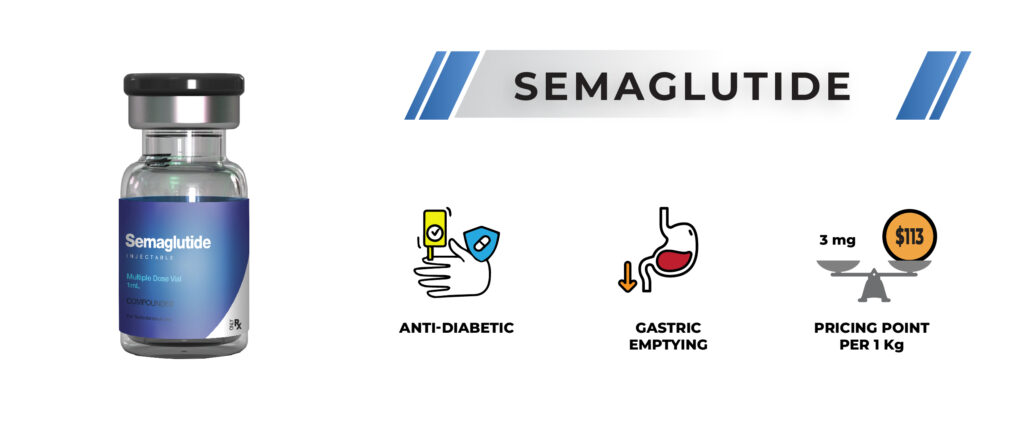
Semaglutide is a remarkable peptide-based medication renowned for its effectiveness in managing type 2 diabetes and promoting weight loss.
Its mechanism of action hinges on mimicking the role of glucagon-like peptide-1 (GLP-1), a naturally occurring hormone in the body.
Upon injection, Semaglutide acts as a GLP-1 receptor agonist, binding to specific receptors in the pancreas. This triggers a cascade of physiological responses.
Firstly, it enhances insulin secretion from pancreatic beta cells, which helps regulate blood sugar levels, particularly after meals.
Simultaneously, Semaglutide inhibits glucagon secretion, preventing the liver from releasing excess glucose into the bloodstream [3].
Beyond its immediate glycemic effects, Semaglutide slows down gastric emptying, reducing energy intake and post-meal spikes in blood sugar.
Moreover, it exerts a profound impact on appetite control centers in the brain, promoting satiety and reducing energy intake. This appetite-suppressing quality makes Semaglutide a valuable tool in obesity management.
Semaglutide’s multifaceted mechanism of action makes it a potent and versatile therapeutic option for individuals with type 2 diabetes and obesity, offering improved glycemic control and substantial weight loss benefits.
Semagutide SourcesSemaglutide (GLP-1) for Sale
Semaglutide gets grouped with other Peptides but is more commonly known as a GLP-1 receptor agonist. It mimics the action of human incretin glucagon-like peptide-1 (GLP-1).
This is something that you would want when trying to lose weight, and this is why Semaglutide is being used as an anti-obesity medication (combined with a good diet and training plan). It is simply a method of glycemic control. [1,2]
When trying to lose weight or even trying to increase weight dramatically (bulking), glycemic control could help a tremendous amount.
Semaglutide will help your pancreas release the right amount of insulin when your blood sugar is high. So, it helps your body produce the correct amount of insulin needed.
This can help you avoid chronically high levels of blood sugar, which can have some severe impacts on your health. Fitness fanatics will also know that elevated blood sugar levels are one of the major causes of inflammation, fat gain, and heart disease.
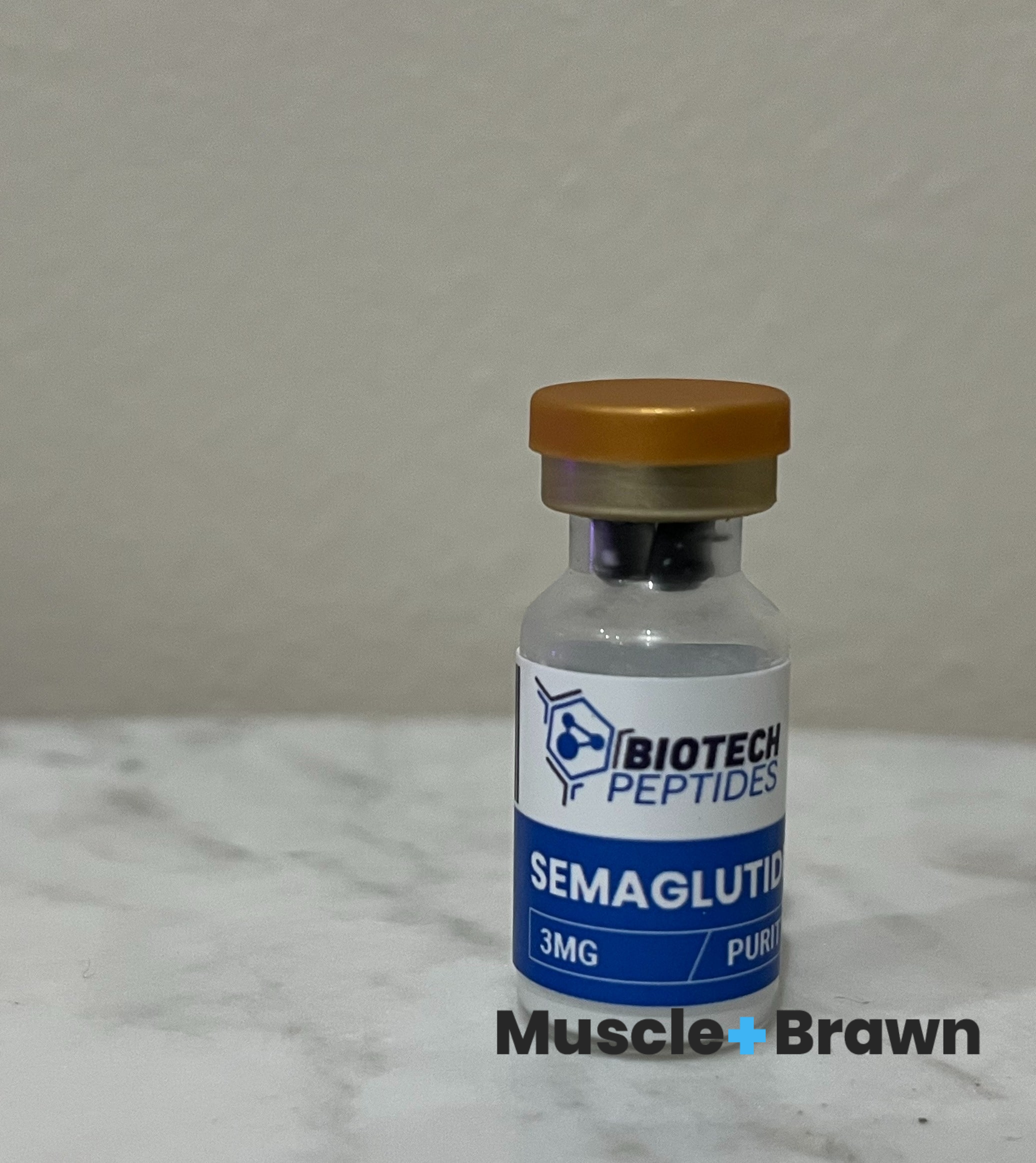







? Men/Women: Men and women
 Go to the Full review
Go to the Full review [/i]
- Increases insulin control
- Decreases hunger
- Pain at the injection site
- Allergic reaction
All about Liraglutide
Liraglutide, a remarkable peptide-based medication, functions as a potent agonist of the glucagon-like peptide-1 (GLP-1) receptor, playing a pivotal role in the management of type 2 diabetes and obesity management.
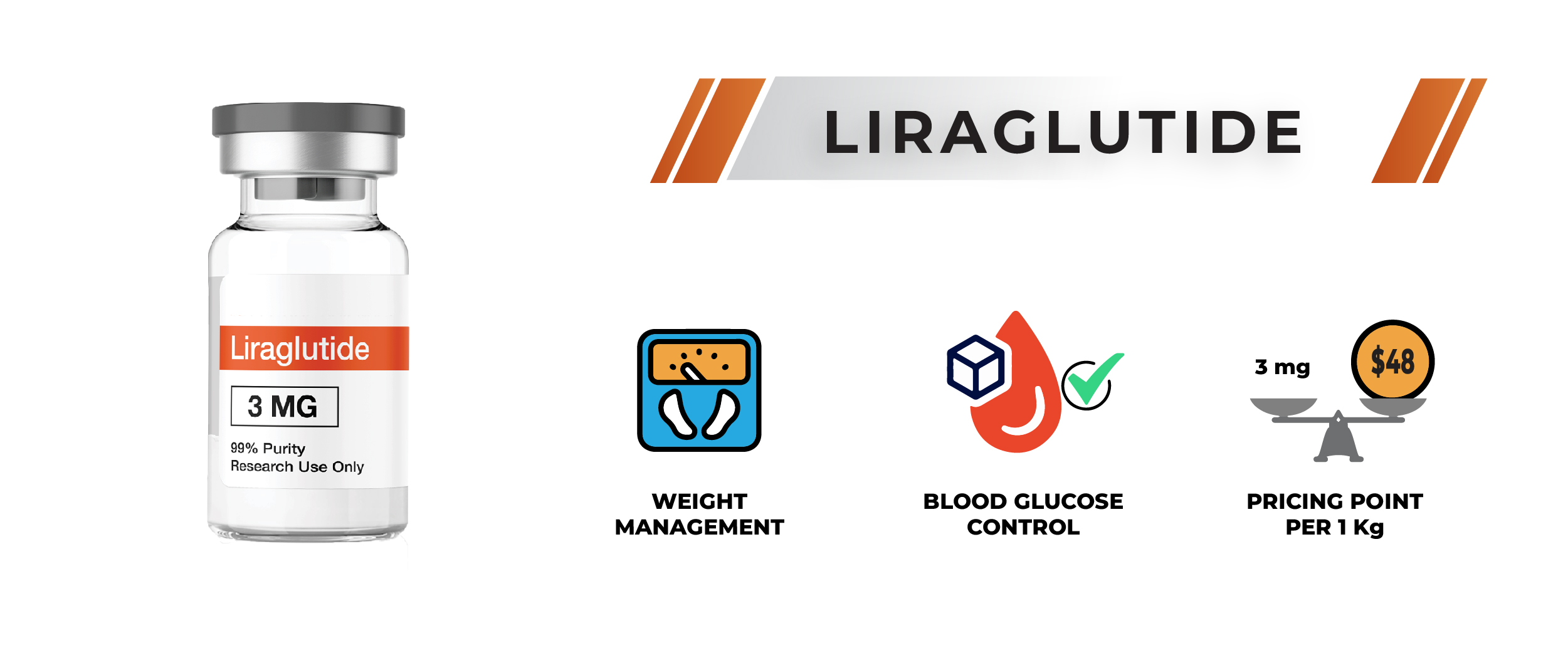
Its mechanism of action is a multi-faceted process designed to address key issues in these chronic diseases.
Upon administration, Liraglutide mimics the activity of endogenous GLP-1, which is normally released by the intestines in response to food intake.
It operates by enhancing insulin secretion from pancreatic beta cells, suppressing glucagon release, and slowing down gastric emptying.
These actions collectively lead to improved blood glucose control [4].
Furthermore, Liraglutide exerts its influence on the hypothalamus, effectively curbing appetite and promoting a feeling of fullness. This appetite-suppressing effect contributes to the weight reduction observed in individuals using Liraglutide.
Additionally, Liraglutide exhibits potential cardiovascular benefits, including reducing the risk of heart attacks and strokes. This makes it a valuable asset for individuals with diabetes, who often face an elevated risk of cardiovascular complications [5].
In summary, Liraglutide’s mechanism of action involves enhancing insulin secretion, inhibiting glucagon release, delaying gastric emptying, and curbing appetite.
These actions collectively contribute to its effectiveness in managing blood sugar levels and promoting weight loss in patients with type 2 diabetes and overweight or obesity.
Liraglutide for SaleLiraglutide for Sale
Liraglutide falls under the GLP-1 receptor agonist class. It emulates the function of incretin hormone glucagon-like peptide-1 (GLP-1) found in the human body.
Liraglutide is utilized primarily as a weight loss adjunct, proving beneficial when merged with a balanced diet and regular exercise; it serves as a method for managing blood sugar levels effectively.
Individuals aiming for weight loss or even those interested in substantial weight gain (bulking) can find glycemic control to be immensely helpful.
Liraglutide aids the pancreas in releasing an adequate amount of insulin, especially when blood sugar levels are elevated, thus assisting the body in maintaining optimal insulin levels.
Ensuring that blood sugar levels are well-regulated is crucial as consistently elevated blood sugar levels can lead to severe health complications. Those passionate about fitness and health recognize that high blood sugar levels can be a precursor to inflammation, excessive fat accumulation, and cardiovascular diseases.
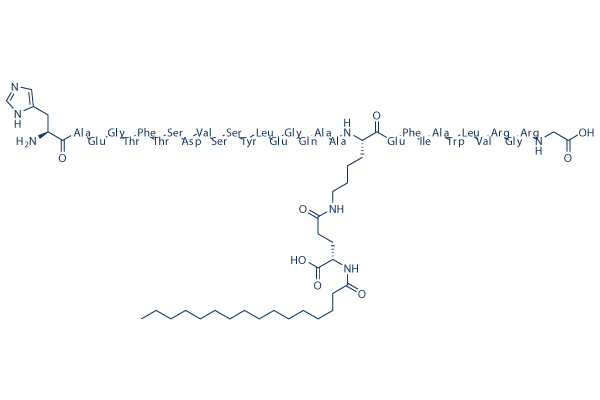






? Men/Women: Suitable for both men and women
 Go to the Full review
Go to the Full review [/i]
- Increases blood sugar control
- Decreases hunger
- Potential allergic reactions
- Nausea and vomiting
Semaglutide Peptide Therapy: Understanding Its Distinct Role
Belonging to the class of glucagon-like peptide-1 (GLP-1) receptor agonists, Semaglutide offers powerful blood sugar control by stimulating insulin secretion while inhibiting glucagon release.
Additionally, Semaglutide plays a role in energy intake regulation, aiding those on their weight loss journey.
Semaglutide also slows down gastric emptying, reducing post-meal blood sugar spikes.
Moreover, it stands out for its remarkable weight loss benefits, making it a preferred choice for individuals looking to shed excess body weight.
It has been observed in trial data that those using semaglutide often experience a decrease in body weight assessment, correlating with their weight loss journey.
With its convenient once-weekly dosing and potential cardiovascular advantages, Semaglutide represents a groundbreaking approach to improving the health and well-being of those living with diabetes and obesity.
Notably, during a randomized clinical trial, the semaglutide group completed treatment, exhibiting sustained weight loss when compared to other weight loss drugs.
Liraglutide Peptide Therapy: Understanding Its Distinct Role
Liraglutide peptide therapy is a breakthrough weight loss medication used in managing type 2 diabetes and obesity.
Through its action as a potent glucagon-like peptide-1 (GLP-1) receptor agonist, Liraglutide mimics the effects of natural GLP-1, enhancing insulin secretion, reducing glucagon release, and slowing down digestion to regulate blood sugar levels. Its unique feature lies in its appetite-suppressing properties, helping individuals lose weight effectively.
Beyond glycemic control and weight management, Liraglutide exhibits cardiovascular benefits, reducing the risk of cardiovascular disease and other weight-related comorbidities.
Administered via injection, Liraglutide, when compared to other weight loss treatments, has become a valuable tool in obesity management and improving the health and quality of life for those with diabetes.
Applications and Potential Uses of Liraglutide
Type 2 Diabetes Management
Liraglutide serves as a pivotal agent in the management of type 2 diabetes, offering a multifaceted approach to glycemic control. As a glucagon-like peptide-1 (GLP-1) receptor agonist, Liraglutide activates GLP-1 receptors, primarily found in pancreatic beta cells.
This stimulation prompts the release of insulin, the hormone responsible for glucose uptake and utilization.
Simultaneously, Liraglutide curtails the secretion of glucagon, a hormone that raises blood sugar levels, thereby assisting those with high blood pressure. These combined actions lead to improved glycemic control, helping to reduce elevated blood glucose levels characteristic of type 2 diabetes [6].
Weight Management
Liraglutide’s impact on weight management has garnered significant attention, particularly at higher doses (3 mg daily) marketed as Saxenda.
This GLP-1 receptor agonist operates on the brain’s appetite-regulating centers, promoting feelings of fullness and satiety. Liraglutide helps individuals control their calorie consumption by reducing appetite and food intake.
Scientific studies, such as the SCALE clinical trials, have highlighted its effectiveness in achieving substantial weight loss among obese and overweight individuals.
Weight reduction is not only a cosmetic benefit but also a significant contributor to improved metabolic parameters, including blood pressure and cholesterol levels.
Cardiovascular Risk Reduction
Liraglutide has emerged as a potential champion in reducing cardiovascular risk among individuals with type 2 diabetes.
The LEADER trial, a landmark study, has provided compelling evidence of its cardiovascular benefits [7].
Participants receiving Liraglutide experienced a notable decrease in the risk of major adverse cardiovascular events (MACE), encompassing heart attacks, strokes, and cardiovascular-related deaths. This risk reduction is particularly crucial for individuals with diabetes, as they are often at a heightened risk of cardiovascular complications.
While the precise mechanisms underlying these cardiovascular benefits are not yet fully understood, Liraglutide’s ability to improve blood sugar control, reduce blood pressure, and positively impact body weight likely contributes to its favorable cardiovascular outcomes.
Non-Alcoholic Fatty Liver Disease (NAFLD)
Emerging research has illuminated Liraglutide’s potential in addressing non-alcoholic fatty liver disease (NAFLD). This progressive liver condition is characterized by the accumulation of fat in the liver, often leading to inflammation and fibrosis.
Studies investigating Liraglutide’s effects on NAFLD have demonstrated improvements in liver function and a significant reduction in liver fat content.
Additionally, Liraglutide may hold promise in ameliorating liver fibrosis, a crucial aspect of NAFLD progression [8]. These findings are especially promising given the rising prevalence of NAFLD and the lack of approved medications for its treatment.
Neuroprotection
Preclinical studies have provided tantalizing hints regarding Liraglutide’s potential neuroprotective properties.
While the majority of research remains at the experimental stage, Liraglutide has demonstrated neuroprotection in animal models of neurodegenerative diseases such as Alzheimer’s disease and Parkinson’s disease.
These studies suggest that Liraglutide may help preserve neurons, reduce inflammation, and enhance cognitive function. However, it’s essential to note that translating these findings into clinical applications for humans requires further research and clinical trials.
Polycystic Ovary Syndrome (PCOS)
Although not yet widely accepted, Liraglutide has been explored as a treatment option for individuals with polycystic ovary syndrome (PCOS).
PCOS is characterized by insulin resistance, hormonal imbalances, and weight gain. Liraglutide’s ability to improve insulin sensitivity and promote weight reduction makes it a potentially beneficial option for managing PCOS.
Clinical studies in this area are ongoing, aiming to establish its efficacy and safety profile for PCOS management.
While more research is needed, Liraglutide’s unique mechanisms of action offer promise in addressing the multifaceted challenges posed by PCOS.
Applications and Potential Uses of Semaglutide
Type 2 Diabetes Management
Semaglutide is a cornerstone in the management of type 2 diabetes. It acts by stimulating insulin secretion from pancreatic beta cells while simultaneously inhibiting the release of glucagon from the pancreas.
This dual mechanism enhances glucose control, helping individuals achieve better blood sugar levels.
Numerous scientific trials, including the SUSTAIN trials, have consistently shown Semaglutide’s efficacy in reducing HbA1c levels—a key marker of long-term blood sugar control.
By improving glycemic control, it reduces the risk of diabetes-related complications.
Weight Management
Semaglutide has emerged as a promising solution for weight management, particularly in individuals with obesity.
The STEP trials (Semaglutide Treatment Effect in People with Obesity) have revealed its exceptional capacity to induce significant weight loss.
This effect is attributed to its ability to reduce appetite and calorie intake, making it an invaluable tool for those aiming to shed excess pounds.
Cardiovascular Risk Reduction
Beyond its glycemic benefits, Semaglutide has demonstrated potential cardiovascular advantages.
Research, exemplified by the SUSTAIN-6 trial, suggests that Semaglutide may reduce the risk of major cardiovascular events in individuals with type 2 diabetes [9]. This finding is paramount for patients with diabetes who are at an elevated risk of heart disease.
Non-Alcoholic Steatohepatitis (NASH)
Semaglutide is under investigation as a potential treatment for non-alcoholic steatohepatitis (NASH), a liver condition closely associated with obesity and insulin resistance.
Clinical trials, such as the Phase 2b study, have reported improvements in liver histology with Semaglutide, suggesting its potential in addressing this challenging condition.
Chronic Weight Management (Wegovy)
Semaglutide is also available under the brand name Wegovy for chronic weight management. It aids individuals in maintaining weight loss achieved through diet and exercise [10].
This application extends its utility beyond diabetes management to help those struggling with obesity maintain a healthier weight.
Potential Neuroprotective Effects
Emerging research indicates that GLP-1 receptor agonists like Semaglutide may possess neuroprotective properties, which could benefit conditions such as Alzheimer’s disease.
While preclinical studies have shown promise, further clinical data is needed to fully establish this potential benefit.
Polycystic Ovary Syndrome (PCOS)
Semaglutide is being explored as a potential treatment for Polycystic Ovary Syndrome (PCOS), a condition frequently associated with insulin resistance and obesity.
Ongoing studies are investigating its impact on PCOS, with preliminary results suggesting improvements in metabolic and hormonal parameters, offering hope for those affected by this syndrome.
Safety, Dangers, and Regulatory Considerations
Considerations for Liraglutide
Liraglutide, an effective diabetes and weight management medication, is generally safe when used as prescribed.
However, it may pose risks such as gastrointestinal side effects (nausea, vomiting), hypoglycemia, and, rarely, pancreatitis. In clinical trials, some participants permanently discontinued treatment due to these adverse events.
Notably, there have been concerns about thyroid tumors in animal studies, but this risk appears low in humans.
In randomized clinical trials, Liraglutide was compared to a placebo group to evaluate its weight loss efficacy.
Regulatory agencies like the FDA closely monitor Liraglutide.
Healthcare providers must consider its potential benefits against these risks when prescribing, especially in patients with a high baseline body weight or those with weight-related comorbidities.
Patients must follow dosing instructions and undergo regular medical check-ups.
Overall, Liraglutide continues to be a valuable weight loss drug and tool in managing diabetes and obesity, with its benefits often outweighing potential dangers.
Considerations for Semaglutide
Semaglutide, while a valuable medication for body weight management and blood sugar control, is not without safety considerations.
Gastrointestinal side effects, such as nausea and diarrhea, are common but often transient.
In the context of a randomized clinical trial, it’s vital to look at the baseline characteristics of participants, including their baseline estimated energy expenditure, to ensure that the weight loss treatments’ effects are accurately gauged.
More concerning is the potential risk of pancreatitis, though it remains relatively rare. Another notable concern is the potential for thyroid C-cell tumors, particularly in rodents during preclinical studies; however, the relevance to humans is still debated.
When examining Semaglutide vs. Liraglutide in weight loss drugs’ context, the structural differences affect their efficacy, though this is a topic of ongoing research.
Regulatory agencies, including the FDA and EMA, closely monitor Semaglutide. It is approved for diabetes management, obesity treatment, and liver disease in some regions, but long-term safety data continues to accumulate.
The balance between its remarkable benefits and potential risks underscores the importance of informed medical decision-making and adherence to regulatory guidelines, with ongoing research contributing to a deeper understanding of its safety profile.
Patients should maintain a healthy diet and discuss any concerns with their healthcare providers regarding their weight loss journey.
Factors To Remember When Buying Peptides
Consult a Healthcare Provider
Schedule an appointment with a healthcare professional, preferably an endocrinologist or a primary care physician who specializes in diabetes or obesity. Discuss your medical history, current condition, and treatment goals. They will assess whether Semaglutide or Liraglutide is appropriate for you.
Consult a Healthcare Provider
If your healthcare provider determines that Semaglutide or Liraglutide is suitable for your needs, they will prescribe the medication. This step is essential, as both drugs are available by prescription only.
Insurance and Coverage
Check with your health insurance provider to determine whether Semaglutide or Liraglutide is covered under your plan. These medications can be expensive and require proper storage, so understanding your coverage and potential out-of-pocket costs is crucial.
Select a Pharmacy
Once you have a prescription, choose a pharmacy where you’d like to buy the peptides. Many pharmacies offer the option to order medications online or in-store, providing flexibility based on your preferences.
Fill the Prescription
Take your prescription to the selected pharmacy and ask the pharmacist to fill it. They will provide you with the appropriate dosage and instructions for use. Be sure to ask any questions you may have about the medication, dosing, and potential side effects to ensure safe and effective use.
In Summary
In the epic battle of Liraglutide vs. Semaglutide, these two heavyweight contenders bring remarkable firepower to the arena of diabetes management, obesity control, and more. Liraglutide, the seasoned veteran, offers tried-and-true efficacy in blood sugar regulation, while Semaglutide, the rising star, dazzles with its weight loss prowess.
As the dust settles, it’s clear that both these GLP-1 receptor agonists have their unique strengths and applications. The choice between them hinges on individual goals and needs.
So, whether you’re seeking the perfect ally to tackle diabetes or the secret weapon for shedding those extra pounds, remember that the real champion here is you, armed with the knowledge to make an informed decision in your quest for better health.
Click here to view the article.

